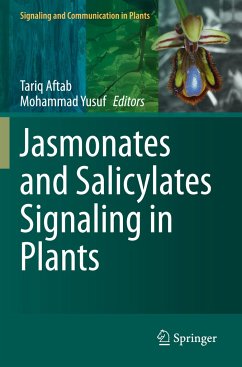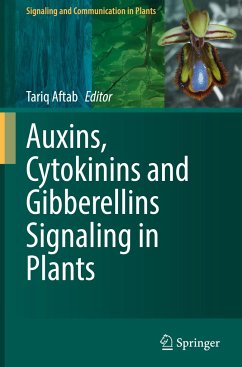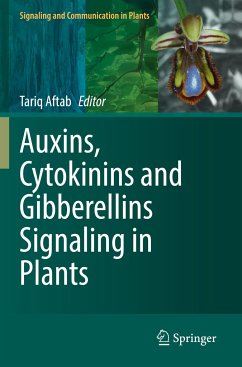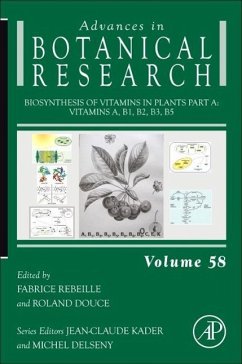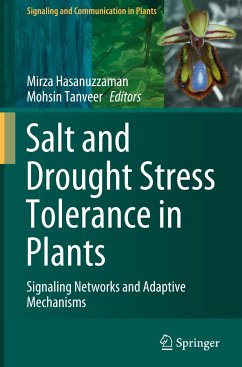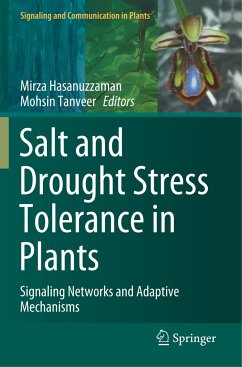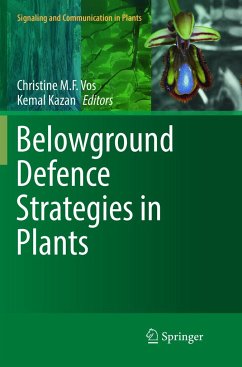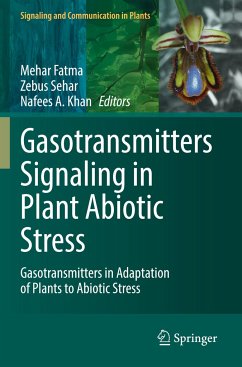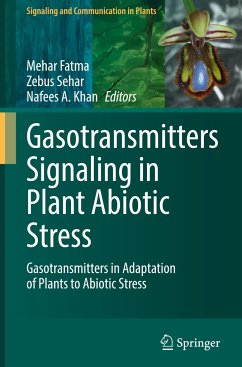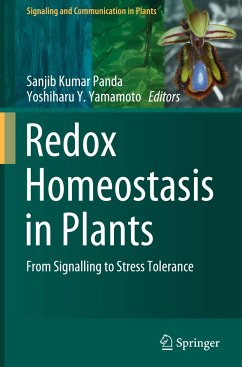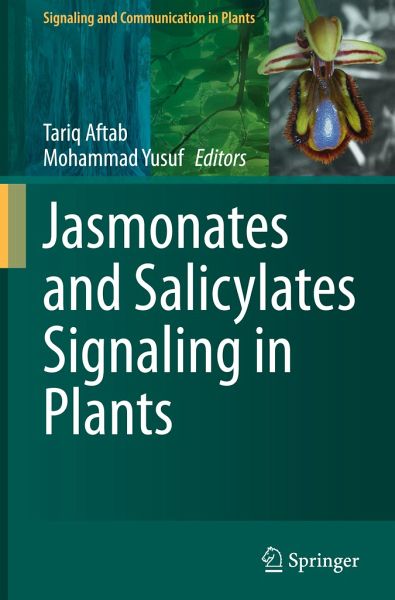
Jasmonates and Salicylates Signaling in Plants

PAYBACK Punkte
95 °P sammeln!
Demand for agricultural crops and nutritional requirement continues to escalate in response to increasing population. Also, climate change exerts adverse effects on agriculture crop productivity. Plant researchers have, therefore, focused to identify the scientific approaches that minimize the negative impacts of climate change on agricultural crops. Thus, it is the need of the hour to expedite the process for improving stress tolerance mechanisms in agricultural crops against various environmental factors, in order to fulfil the world's food demand. Among the various applied approaches, the a...
Demand for agricultural crops and nutritional requirement continues to escalate in response to increasing population. Also, climate change exerts adverse effects on agriculture crop productivity. Plant researchers have, therefore, focused to identify the scientific approaches that minimize the negative impacts of climate change on agricultural crops. Thus, it is the need of the hour to expedite the process for improving stress tolerance mechanisms in agricultural crops against various environmental factors, in order to fulfil the world's food demand. Among the various applied approaches, the application of phytohormones has gained significant attention in inducing stress tolerance mechanisms.
Jasmonates are phytohormones with ubiquitous distribution among plants and generally considered to modulate many physiological events in higher plants such as defence responses, flowering and senescence. Also, jasmonates mediate plant responses to many biotic and abiotic stresses by triggering a transcriptional reprogramming that allows cells to cope with pathogens and stresses. Likewise, salicylates are important signal molecules for modulating plant responses to environmental stresses. Salicylic acid influences a range of diverse processes in plants, including seed germination, stomatal closure, ion uptake and transport, membrane permeability and photosynthetic and growth rate.
Understanding the significant roles of these phytohormones in plant biology and from agriculture point of view, the current subject has recently attracted the attention of scientists from across the globe. Therefore, we bring forth a comprehensive book "Jasmonates and Salicylates Signalling in Plants" highlighting the various prospects involved in the current scenario. The book comprises chapters from diverse areas dealing with biotechnology, molecular biology, proteomics, genomics, metabolomics, etc. We are hopeful that this comprehensive book furnishes the requisite of all those who are working or have interest in this topic.
Jasmonates are phytohormones with ubiquitous distribution among plants and generally considered to modulate many physiological events in higher plants such as defence responses, flowering and senescence. Also, jasmonates mediate plant responses to many biotic and abiotic stresses by triggering a transcriptional reprogramming that allows cells to cope with pathogens and stresses. Likewise, salicylates are important signal molecules for modulating plant responses to environmental stresses. Salicylic acid influences a range of diverse processes in plants, including seed germination, stomatal closure, ion uptake and transport, membrane permeability and photosynthetic and growth rate.
Understanding the significant roles of these phytohormones in plant biology and from agriculture point of view, the current subject has recently attracted the attention of scientists from across the globe. Therefore, we bring forth a comprehensive book "Jasmonates and Salicylates Signalling in Plants" highlighting the various prospects involved in the current scenario. The book comprises chapters from diverse areas dealing with biotechnology, molecular biology, proteomics, genomics, metabolomics, etc. We are hopeful that this comprehensive book furnishes the requisite of all those who are working or have interest in this topic.



